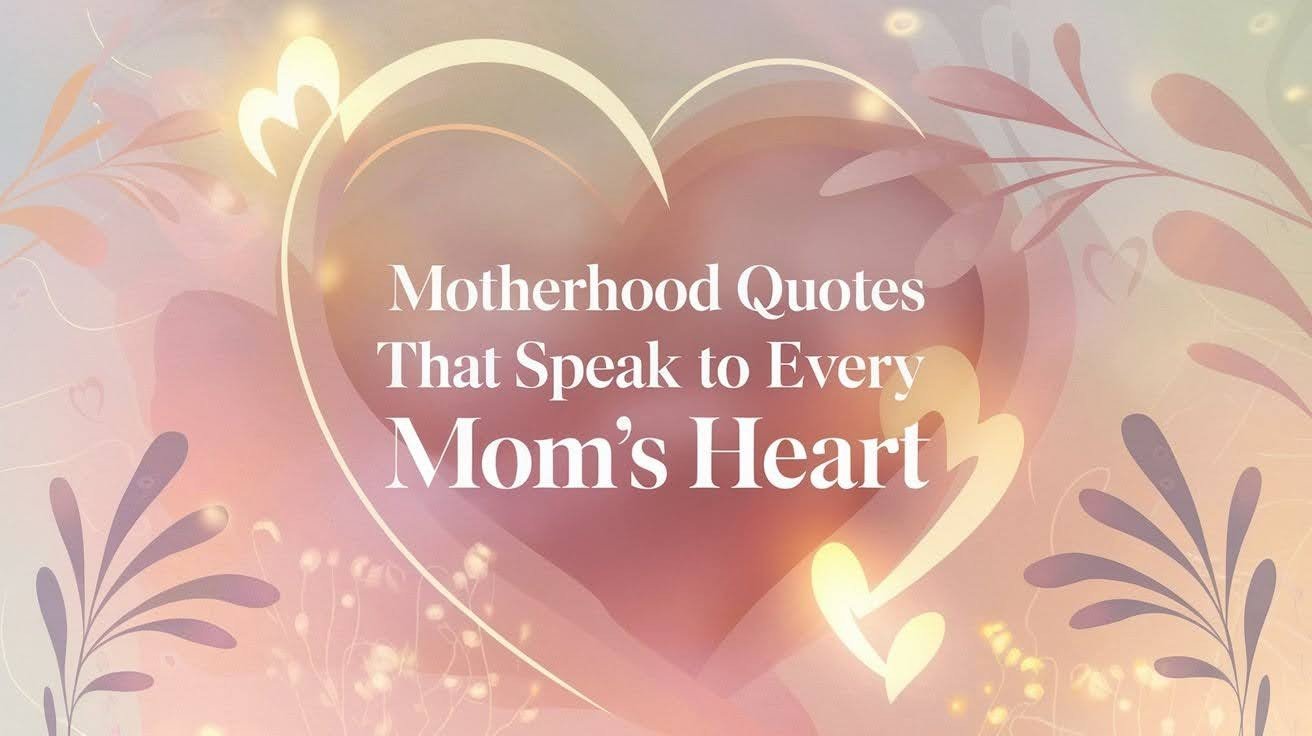The term “millennial mom” gets thrown around constantly, but what does it actually mean? I’m a millennial mother born in 1987, raising two kids while juggling work and wondering if I’m doing everything wrong.
This guide breaks down the real millennial mom meaning based on research and lived experiences. Every insight comes from studying parenting trends and connecting with hundreds of mothers in our generation.
Born between 1981-1996, we’re the first generation parenting with social media while drawing from analog childhoods. Currently representing over one-third of working Americans, you’ll finally understand what millennial motherhood really means today.
Defining the Millennial Mom Experience

Millennial moms exist in a weird space between two worlds. I remember getting my first cell phone in high school, but my kids have never known life without tablets. We’re translating our analog childhood experiences into digital parenting reality.
Core Identity and Generational Context
Born between 1981-1996, we’re currently ages 27-42, navigating parenthood completely differently than our own parents did.
We grew up WITH social media rather than before or after it. Facebook launched when we were in college, and Instagram appeared in our twenties.
Our children will know Instagram by age 2-3, which feels both normal and terrifying. We’re bridging two completely different worlds – our phone-free childhoods and our kids’ screen-filled reality.
No established parenting playbook exists for this unique situation we find ourselves facing daily.
Historical and Cultural Positioning
Our childhoods looked nothing like our kids’ daily lives. We waited weeks for the film to develop, played outside until streetlights came on, and our parents had no idea where we were for hours.
No helmet requirements for bike riding, no constant safety monitoring existed. Cell phones didn’t exist in our elementary years.
We remember the transition from college-only Facebook to everyone’s parents joining social media.
This puts us in a unique position to understand both connected and disconnected childhood experiences that shape our parenting approach.
Current Parenting Context Challenges
Today, we’re raising emotionally intelligent children while managing our own digital overwhelm. Screen time becomes complicated when your work requires constant connectivity.
We want organic, healthy meals, but also need practical solutions that fit our schedules and energy levels.
Finding personal identity within intensive motherhood feels impossible some days. Working while staying present for our children creates constant internal tension.
We’re pioneering a completely new approach to balancing career ambitions with hands-on parenting without established models to follow.
Distinctive Characteristics of Millennial Moms

We parent with intention, research, and a healthy dose of anxiety about doing everything right. Technology shapes how we make decisions, connect with other parents, and manage daily life. Our approach combines old-school values with modern methods.
Technology Integration and Digital Habits
We’re highly tech-savvy but also worried about screen time effects on our children. I follow at least twelve parenting experts on Instagram and belong to four specialized Facebook groups.
Online research drives most of our parenting decisions, for better or worse. Social media provides our primary source of parenting advice and community connection.
We use apps to track feeding schedules, sleep patterns, and developmental milestones. Technology serves as both an educational tool and a constant distraction from present-moment parenting that we’re trying to achieve.
Parenting Philosophy and Approach
We embrace gentle parenting over the authoritarian “because I said so” methods we experienced as children.
Open communication and emotional intelligence development take priority over blind obedience. Respectful parenting and positive discipline techniques guide our daily interactions with our children.
Research drives our decision-making on everything from sleep training to nutrition choices. We reject traditional “children should be seen, not heard” approaches in favor of treating kids as whole human beings with valid feelings and opinions that deserve respect.
Health and Nutrition Consciousness
We read ingredient labels obsessively and research gut health like it’s our doctoral thesis. Making homemade baby food happens at least once, though it might not last long.
Organic options get prioritized while keeping practical emergency snacks readily available for meltdowns.
Understanding juice as mostly sugar rather than a healthy option sets us apart from previous generations.
We’re more educated about balanced nutrition, but also more anxious about every food choice we make for our families and its long-term health implications.
Work-Life Integration Philosophy
We’re redefining “having it all” to include flexible definitions of success that work for our individual circumstances.
Some of us work full-time, others run side businesses, and some focus entirely on home management. Career ambitions exist alongside family commitments rather than competing with them.
Personal fulfillment benefits the entire family dynamic, not just ourselves. Integration rather than competition between professional and maternal roles creates a more sustainable approach to modern motherhood than previous generations managed to achieve successfully.
Mental Health and Self-Care Prioritization
We understand burnout as a serious problem, not a badge of honor to display proudly. Self-care becomes a necessity rather than a luxury when you’re responsible for other human beings.
Therapy serves as an essential maintenance tool rather than a shameful last resort option. Setting boundaries with toxic relationships and obligations protects our family’s well-being.
We recognize that happy, fulfilled mothers create better family environments than martyred, resentful ones who sacrifice everything for others without considering the long-term emotional costs.
Breaking Generational Cycles
We actively unlearn outdated parenting methods from our own childhoods that didn’t serve us well. Creating emotionally safe homes for our children takes priority over maintaining family traditions that caused harm.
Therapy integration and feelings-focused communication replace emotional suppression and punishment-based discipline.
Rejecting toxic family dynamics means establishing completely new patterns for our children. Intentional parenting choices based on current research and personal values guide our decisions rather than blindly repeating what was done to us during our own childhood experiences.
Daily Life and Practical Experiences

Our daily reality involves constant juggling of competing priorities and technological boundaries. Managing household logistics while maintaining work productivity and staying present for children requires skills no previous generation needed. We’re creating new systems as we go.
Technology Management Challenges
Balancing professional screen time with family presence creates daily internal conflict. I set device-free zones during family meals, but still check emails while kids play nearby.
Managing our own phone addiction while teaching children healthy digital habits feels hypocritical and challenging.
Work connectivity requirements clash with present-moment parenting goals. Using technology for educational purposes while limiting entertainment consumption requires constant decision-making and boundary enforcement that exhausts us mentally and emotionally throughout each day we’re managing multiple responsibilities.
Household Management and Organization
We maintain organization through extensive planning, scheduling, and mental load management across multiple family responsibilities. Color-coded calendars, meal planning apps, and detailed schedules keep our households functioning. Outsourcing household duties based on time value assessments becomes strategic rather than lazy decision-making.
Balancing traditional homemaking expectations with modern efficiency methods creates internal tension.
Creating systems for managing school communications, work deadlines, and family logistics requires skills our mothers never needed to develop during their parenting years in different circumstances.
Social Life and Community Building
Maintaining adult friendships while managing family responsibilities requires intentional effort and careful scheduling.
Balancing online connections with in-person relationships becomes crucial for mental health. We create community through shared parenting experiences rather than geographical proximity, like previous generations enjoyed naturally.
Managing social obligations with family schedule constraints means saying no more often than we’d like.
Building support networks through children’s activities and school involvement replaces the natural community structures previous generations enjoyed without having to work as hard.
Financial Planning and Value Priorities
We prioritize quality over price in purchasing decisions, especially for items affecting our children’s health and development.
Organic, sustainable, and ethically-made products get budget priority over cheaper alternatives. Investment in educational tools and experiences takes precedence over material possessions that don’t add value.
Balancing financial security with value-based spending requires constant decision-making.
Planning for children’s futures while managing current expenses means our financial priorities look different from previous generation, who had more predictable economic circumstances and clearer expectations.
Professional and Career Integration

We refuse to choose between career fulfillment and present motherhood. Work-life integration replaces work-life balance as our goal since true balance feels impossible. Professional identity enhances rather than competes with maternal identity in our daily lives.
Work-Life Balance Redefinition
We reject traditional “sacrifice everything for career” or “stay-at-home only” models in favor of creating flexible arrangements that serve our families.
Motherhood identity integrates with professional ambitions rather than replacing them. Maternal skills enhance professional capabilities instead of hindering career advancement opportunities.
Modeling work satisfaction and ambition for our children teaches them that mothers can be multifaceted human beings.
Creating flexible work arrangements when possible becomes essential for maintaining both career momentum and family connection without sacrificing either completely.
Entrepreneurship and Side Business Trends
We start side businesses and entrepreneurial ventures at higher rates than previous generations of mothers.
Technology creates flexible income opportunities that work around family schedules and values. Social media serves as a primary marketing and business development tool for our ventures.
Building businesses around family schedules means working during nap times, after bedtime, and between school activities.
Multiple income streams provide financial security while maintaining flexibility that traditional employment often doesn’t offer working mothers in today’s economy.
Workplace Advocacy and Change
We advocate for family-friendly workplace policies and demand flexibility from employers who haven’t adapted to modern family needs.
Creating change in traditional workplace structures benefits all employees, not just parents. Supporting other working mothers through mentorship and community builds systemic change.
Challenging outdated professional expectations around motherhood opens doors for future generations.
We refuse to hide our maternal responsibilities or pretend they don’t affect our professional lives while maintaining high performance standards that prove mothers can excel professionally.
Conclusion
The millennial mom’s meaning comes down to parenting intentionally in uncharted territory. From my own experience raising kids born between 1981-1996, we’re bridging analog childhoods with digital parenting while breaking generational cycles.
You now understand why we research everything, prioritize mental health, and integrate work with motherhood differently. We’re not perfect parents – we’re pioneering a more conscious approach to raising emotionally intelligent children.
The struggle between screen time and presence, organic meals and convenience, career and family is real. You’re not alone in feeling overwhelmed by these competing demands.
What part of the millennial mom meaning resonates most with your experience? Share your thoughts in the comments below.
Frequently Asked Questions
What is the actual millennial mom meaning and definition?
Millennial mom meaning refers to mothers born between 1981-1996 who are parenting in the digital age. They bridge analog childhoods with technology-integrated parenting, prioritize emotional intelligence, research decisions extensively, and actively break generational cycles while balancing career and family responsibilities.
How do millennial moms differ from previous generations of mothers?
Millennial moms embrace gentle parenting over authoritarian methods, prioritize mental health and therapy, research everything extensively, and integrate technology into daily parenting. They reject traditional “sacrifice everything” models and create flexible work-life arrangements while focusing on breaking generational cycles.
What challenges do millennial moms face that other generations didn’t?
Millennial moms navigate parenting without established digital precedents, manage information overload from social media, balance screen time concerns with work connectivity, lack traditional support systems, and face judgment for questioning outdated parenting methods while pioneering new approaches.
Why are millennial moms so focused on breaking generational cycles?
Millennial moms actively unlearn harmful parenting methods from their childhoods, prioritize creating emotionally safe homes, embrace therapy and feelings-focused communication, and make intentional research-based choices rather than blindly repeating traditional patterns that may have caused emotional harm.
How do millennial moms balance work and family differently?
Millennial moms redefine success to include flexible arrangements, integrate professional identity with motherhood rather than choosing between them, start businesses around family schedules, and advocate for family-friendly workplace policies while maintaining career ambitions alongside parenting responsibilities.






